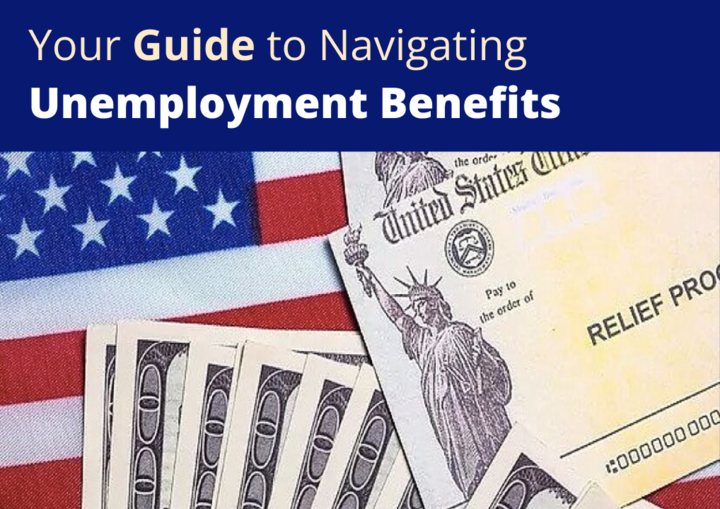The financial benefits of maintaining a healthy credit score and managing credit responsibly are manifold. One of the most significant advantages is the ability to secure loans at lower interest rates. Lenders often assess an individual’s creditworthiness based on their credit score, which reflects their history of managing debt.
A higher credit score typically translates to lower interest rates on mortgages, auto loans, and personal loans. For instance, a borrower with a credit score of 750 may qualify for a mortgage rate of 3.5%, while someone with a score of 620 might face rates as high as 5.5%. Over the life of a 30-year mortgage, this difference can amount to tens of thousands of dollars in additional interest payments.
Moreover, individuals with good credit scores often enjoy more favorable terms on loans, such as reduced fees and more flexible repayment options. This can lead to significant savings over time. For example, a borrower with excellent credit may be offered a loan with no origination fees or prepayment penalties, allowing them to pay off their debt more quickly without incurring additional costs.
Additionally, having access to higher credit limits can provide financial flexibility, enabling individuals to manage unexpected expenses without resorting to high-interest alternatives like payday loans.
Key Takeaways
- Using a credit card responsibly can provide financial benefits such as cashback rewards and travel perks
- Avoiding interest charges by paying off the full balance each month can save money in the long run
- Making timely payments and keeping credit utilization low can improve credit score
- Using a credit card responsibly can help avoid falling into debt and overspending
- Building responsible financial habits through credit card usage can lead to better financial management and planning
- Avoiding late fees by making on-time payments can save money and reduce financial stress
- Responsible credit card usage can provide access to better credit card offers with lower interest rates and higher rewards
- Using a credit card responsibly can provide peace of mind and financial security for unexpected expenses
Avoiding Interest Charges
One of the most compelling reasons to manage credit wisely is the ability to avoid interest charges altogether. Credit cards, while convenient, can quickly become a source of financial strain if balances are not paid in full each month. When individuals carry a balance, they incur interest charges that can compound rapidly, leading to a cycle of debt that is difficult to escape.
For example, if someone has a credit card balance of $5,000 with an annual percentage rate (APR) of 20%, they could end up paying over $1,000 in interest charges if they only make minimum payments. By paying off credit card balances in full each month, individuals can take advantage of the grace period offered by most credit cards, which allows them to avoid interest charges entirely. This practice not only saves money but also reinforces responsible financial behavior.
It encourages individuals to live within their means and prioritize their spending, ultimately leading to better financial health. Furthermore, avoiding interest charges can free up funds for savings or investments, contributing to long-term financial stability.
Improving Credit Score
Improving one’s credit score is a crucial aspect of financial management that can yield numerous benefits. A higher credit score opens doors to better loan terms and lower interest rates, as previously mentioned. However, the process of improving a credit score also fosters a deeper understanding of personal finance.
Individuals who actively work on their credit scores often become more aware of their spending habits and financial decisions. This awareness can lead to more informed choices regarding budgeting and saving. To improve a credit score, individuals should focus on several key factors: timely bill payments, maintaining low credit utilization ratios, and diversifying their credit mix.
For instance, consistently paying bills on time is one of the most significant contributors to a positive credit score. Setting up automatic payments or reminders can help ensure that payments are made promptly. Additionally, keeping credit utilization below 30%—the ratio of current credit card balances to total available credit—can positively impact one’s score.
By actively engaging in these practices, individuals not only enhance their creditworthiness but also cultivate a sense of financial discipline that can benefit them in various aspects of life.
Avoiding Debt
Avoiding debt is a fundamental goal for many individuals seeking financial stability. The burden of debt can be overwhelming and can lead to stress and anxiety. By adopting responsible financial habits and making informed decisions about borrowing, individuals can significantly reduce their chances of falling into debt traps.
One effective strategy is to create and adhere to a budget that outlines income and expenses clearly. This practice allows individuals to track their spending and identify areas where they can cut back. Additionally, it is essential to differentiate between needs and wants when making purchasing decisions.
For example, while it may be tempting to finance a new car or take out a loan for a luxury vacation, individuals should consider whether these expenses align with their long-term financial goals. By prioritizing essential expenses and saving for discretionary purchases rather than relying on credit, individuals can avoid accumulating debt and maintain greater control over their financial futures.
Building Responsible Financial Habits
Building responsible financial habits is an ongoing process that requires commitment and discipline. One effective way to cultivate these habits is through education and awareness about personal finance topics such as budgeting, saving, and investing. Many resources are available today—books, online courses, and financial workshops—that can help individuals develop a solid understanding of money management principles.
Establishing a habit of regular savings is another critical component of responsible financial behavior. Setting aside a portion of income each month for emergencies or future goals can provide a safety net during unexpected financial challenges. For instance, having an emergency fund that covers three to six months’ worth of living expenses can prevent individuals from resorting to high-interest loans in times of need.
Additionally, automating savings contributions can make this process easier and more consistent.
Avoiding Late Fees
Late fees can add unnecessary costs to monthly bills and contribute to financial stress. By managing finances effectively and staying organized, individuals can avoid these penalties altogether.
One practical approach is to create a calendar or use digital tools that send reminders for upcoming due dates for bills and loan payments.
This proactive strategy helps ensure that payments are made on time and prevents the accumulation of late fees. Furthermore, many service providers offer grace periods for payments; understanding these terms can provide additional leeway in managing finances. For example, if an individual knows that their utility company allows a five-day grace period before imposing late fees, they may feel more comfortable scheduling payments accordingly.
By being diligent about payment schedules and utilizing available resources, individuals can save money and maintain better control over their financial obligations.
Access to Better Credit Card Offers
Individuals with strong credit scores often gain access to better credit card offers that come with attractive rewards and benefits. Credit card companies are eager to extend offers to those who demonstrate responsible credit management because they are seen as lower-risk borrowers. These premium cards may offer perks such as cash back on purchases, travel rewards, or points redeemable for merchandise or experiences.
For instance, a person with an excellent credit score might qualify for a travel rewards card that offers double points on airline purchases and no foreign transaction fees. This not only enhances the value of everyday spending but also provides opportunities for free travel or upgrades that would otherwise be unattainable. Additionally, many premium cards come with added benefits such as extended warranties on purchases or access to exclusive events, further enhancing the overall value proposition for responsible borrowers.
Peace of Mind
Finally, one of the most significant yet often overlooked benefits of managing finances responsibly is the peace of mind it brings. Financial stress can take a toll on mental health and overall well-being; therefore, having control over one’s finances fosters a sense of security and stability. Individuals who actively engage in budgeting, saving, and maintaining good credit often experience reduced anxiety related to money matters.
This peace of mind extends beyond just avoiding debt or late fees; it encompasses the confidence that comes from knowing one is prepared for future financial challenges. Whether it’s having an emergency fund in place or being able to make significant purchases without resorting to high-interest loans, this sense of preparedness contributes significantly to overall life satisfaction. Ultimately, responsible financial management not only enhances one’s economic situation but also enriches personal well-being by alleviating the burdens associated with financial uncertainty.
FAQs
What is the importance of paying your credit card balance in full?
Paying your credit card balance in full is important because it helps you avoid paying high interest charges on the remaining balance. It also helps you maintain a good credit score and avoid falling into debt.
How does paying your credit card balance in full affect your credit score?
Paying your credit card balance in full can positively impact your credit score by showing that you are responsible with your credit usage. It can also help lower your credit utilization ratio, which is an important factor in determining your credit score.
What are the consequences of not paying your credit card balance in full?
If you do not pay your credit card balance in full, you will be charged interest on the remaining balance, which can add up quickly and lead to debt. Additionally, it can negatively impact your credit score and make it harder to qualify for loans or other credit in the future.
How can paying your credit card balance in full save you money?
Paying your credit card balance in full can save you money by avoiding high interest charges. It also helps you avoid late fees and other penalties that may be incurred if you do not pay the full balance on time.
What are some tips for paying your credit card balance in full?
Some tips for paying your credit card balance in full include creating a budget, tracking your expenses, and setting up automatic payments to ensure that you never miss a payment. It’s also important to only charge what you can afford to pay off in full each month.







